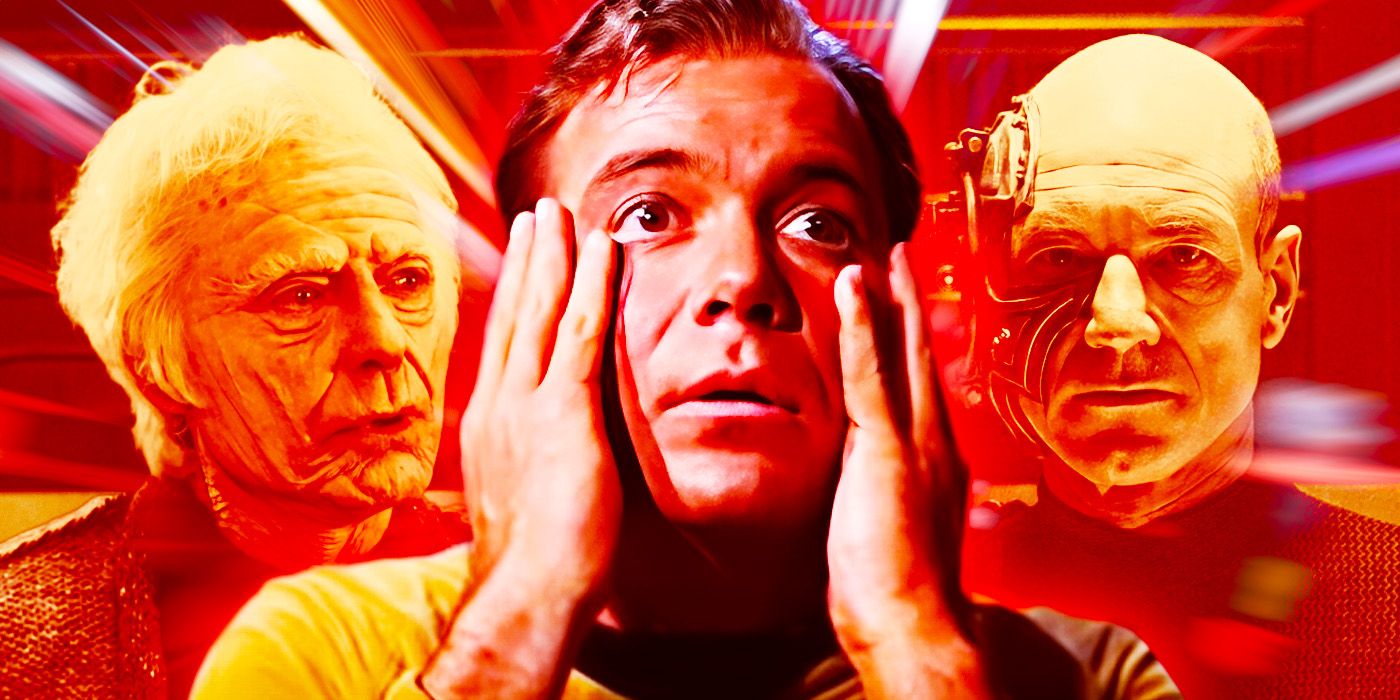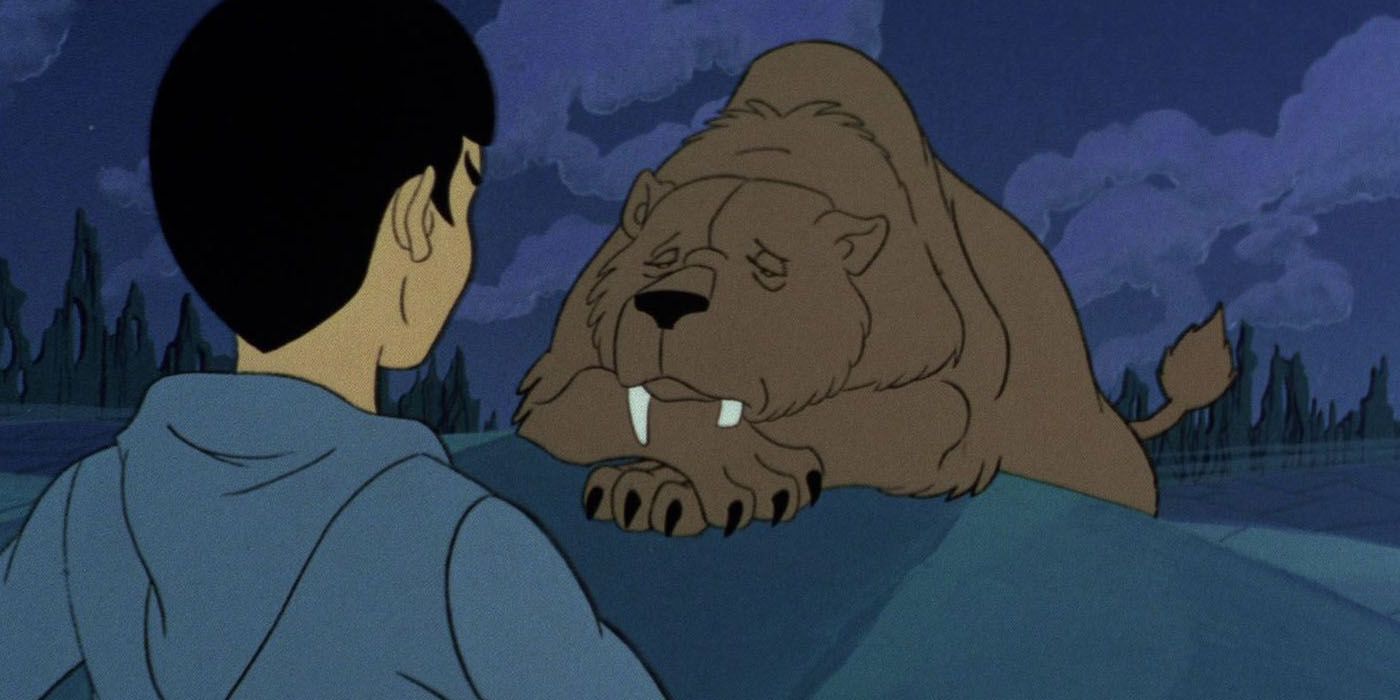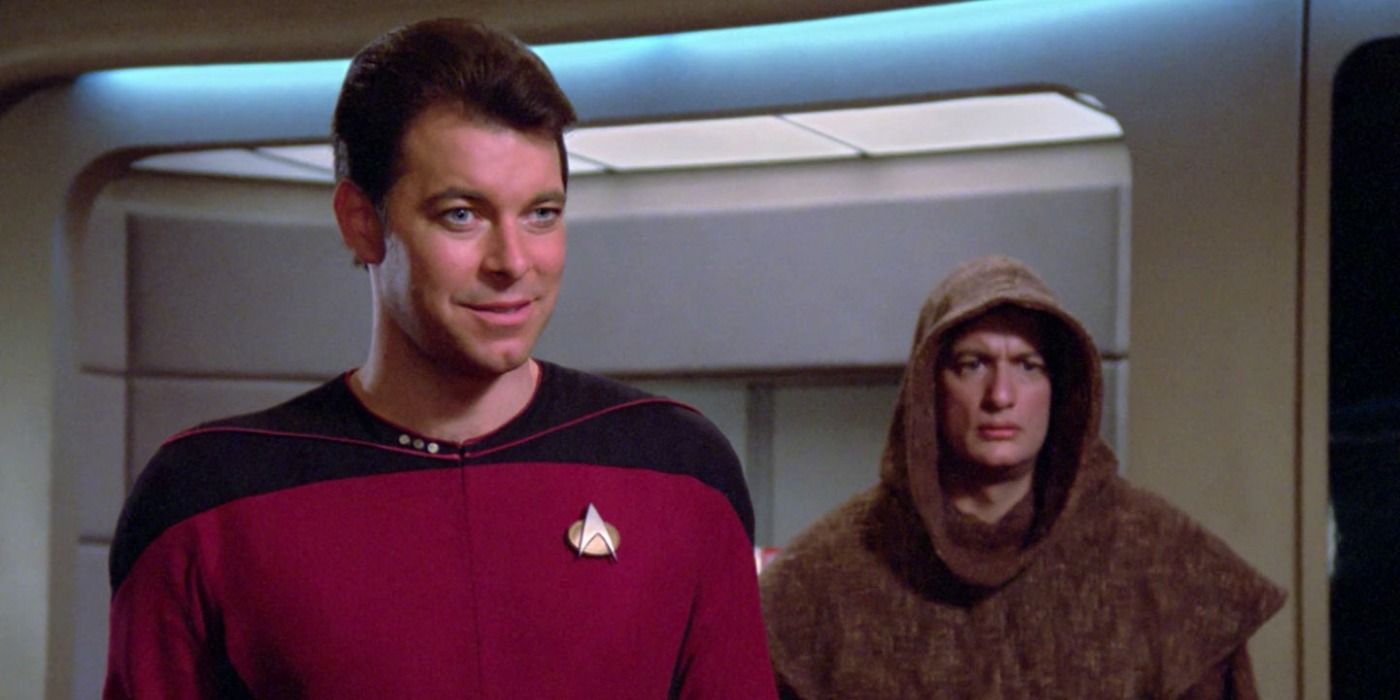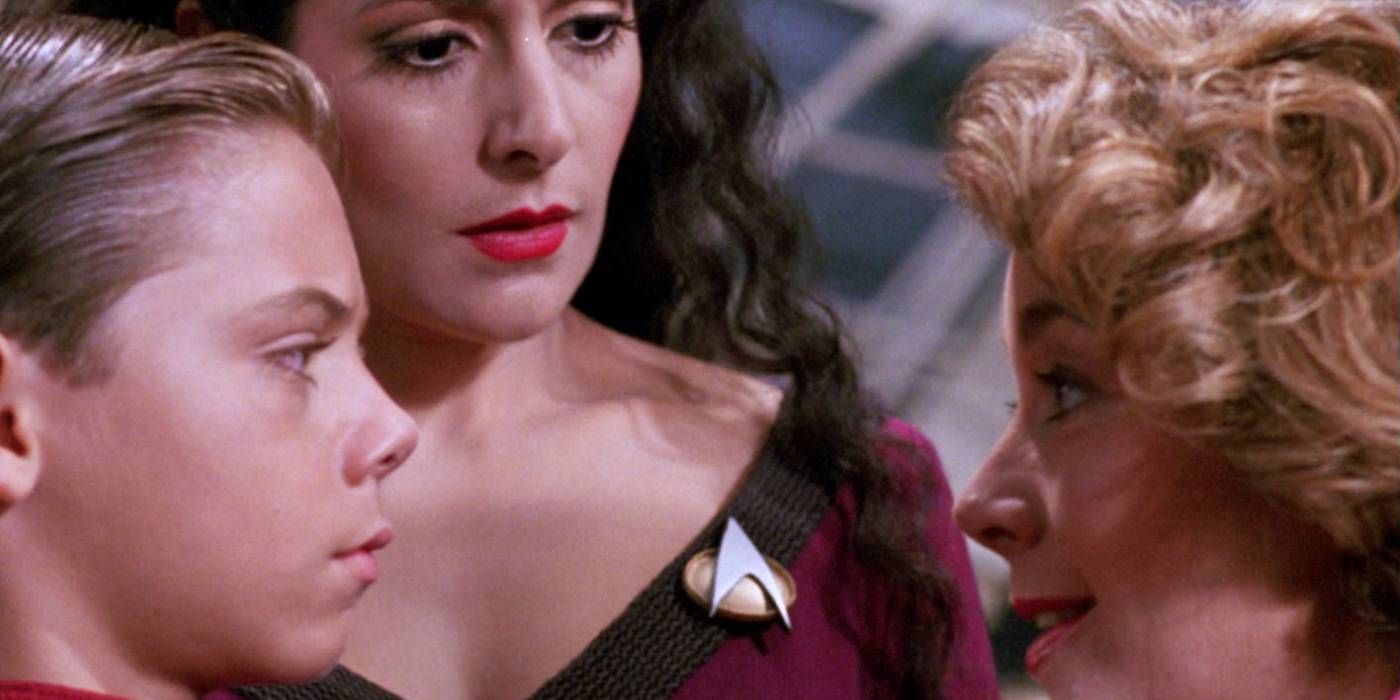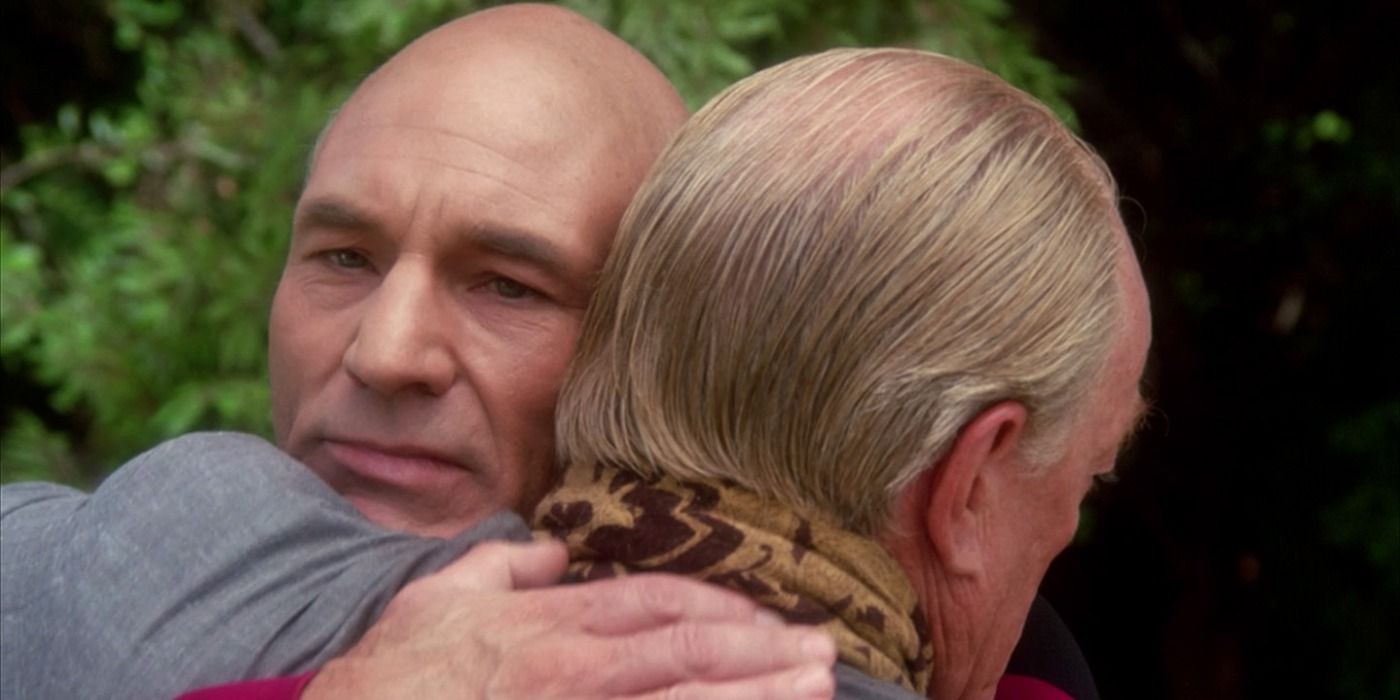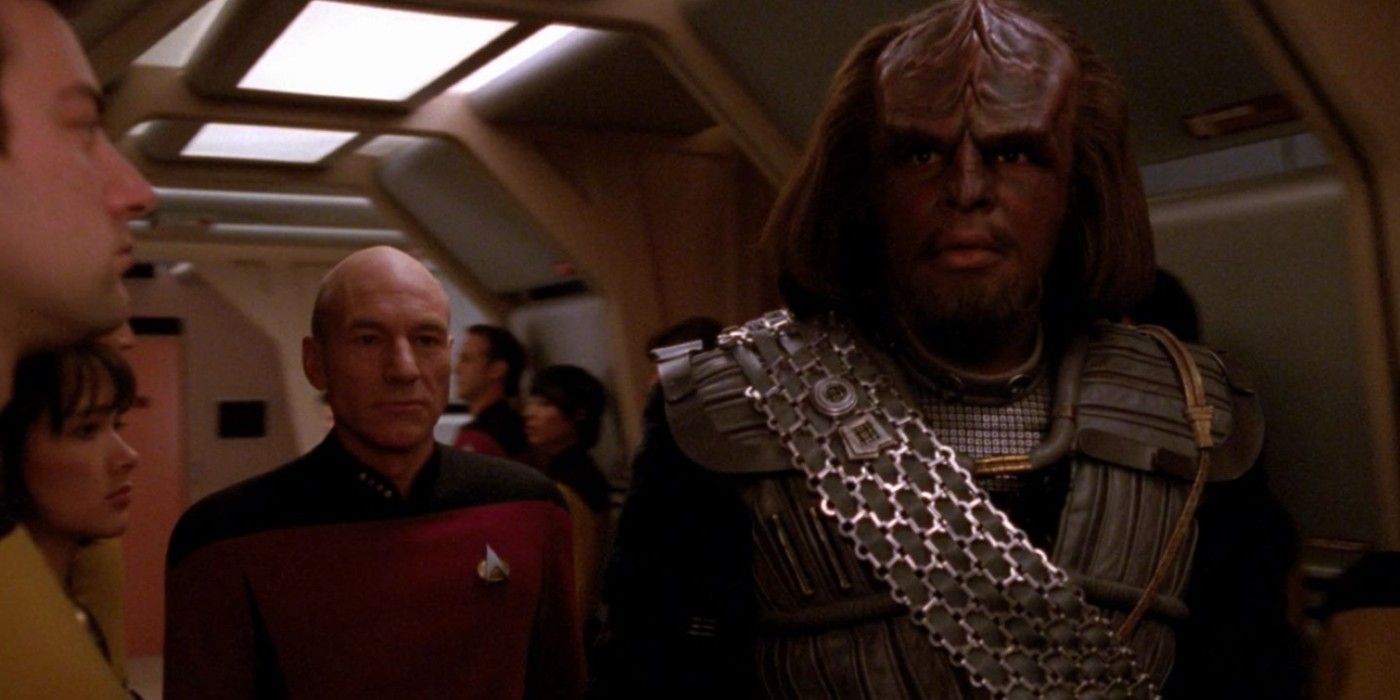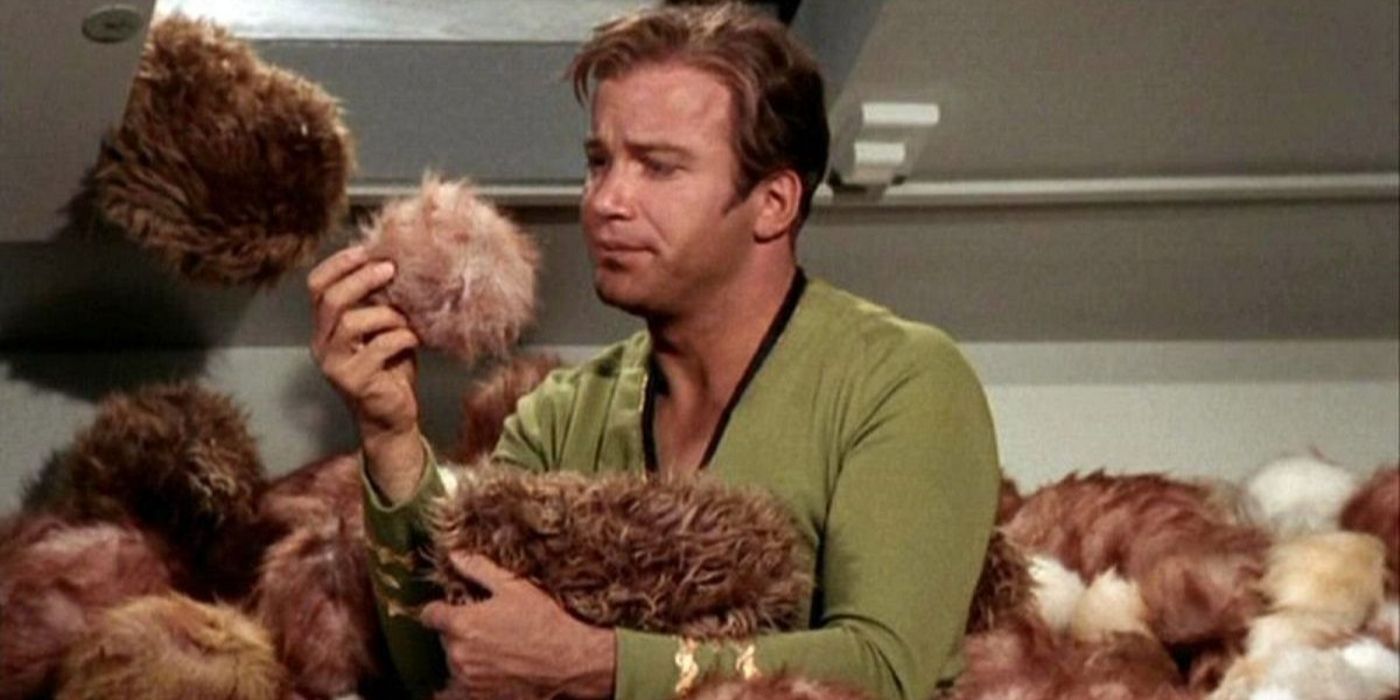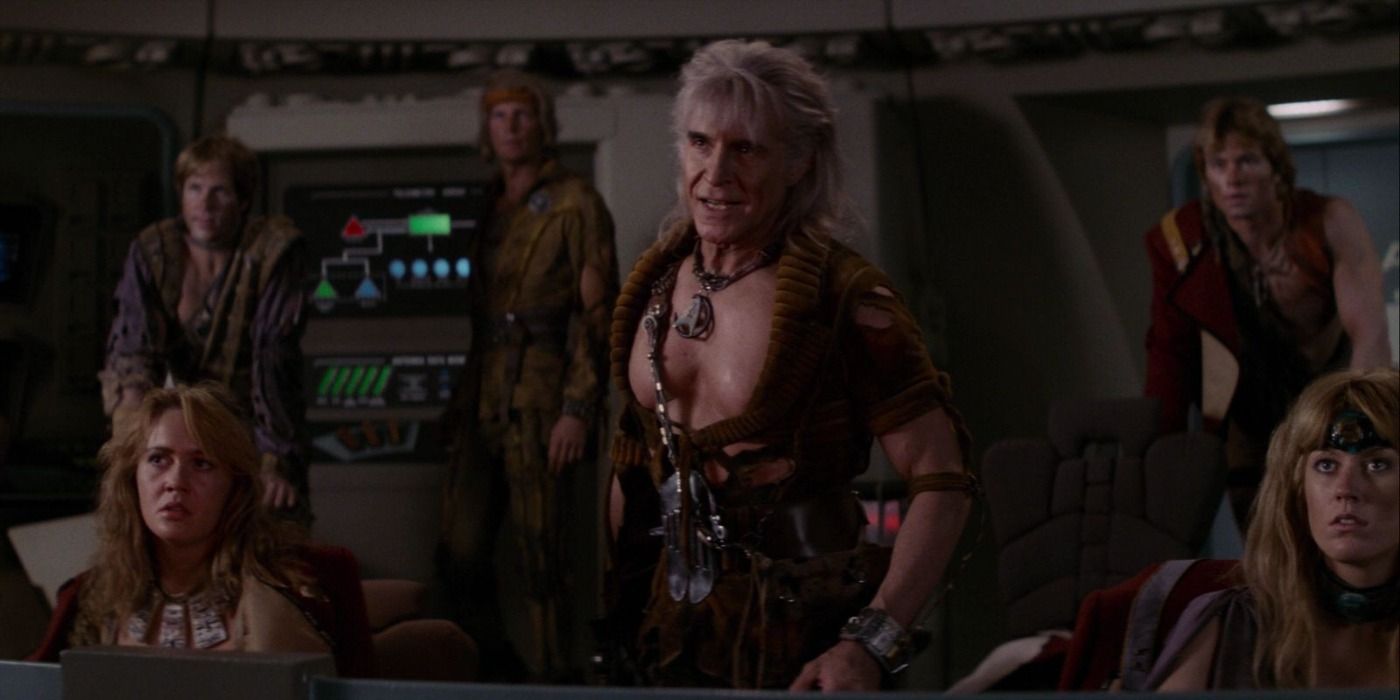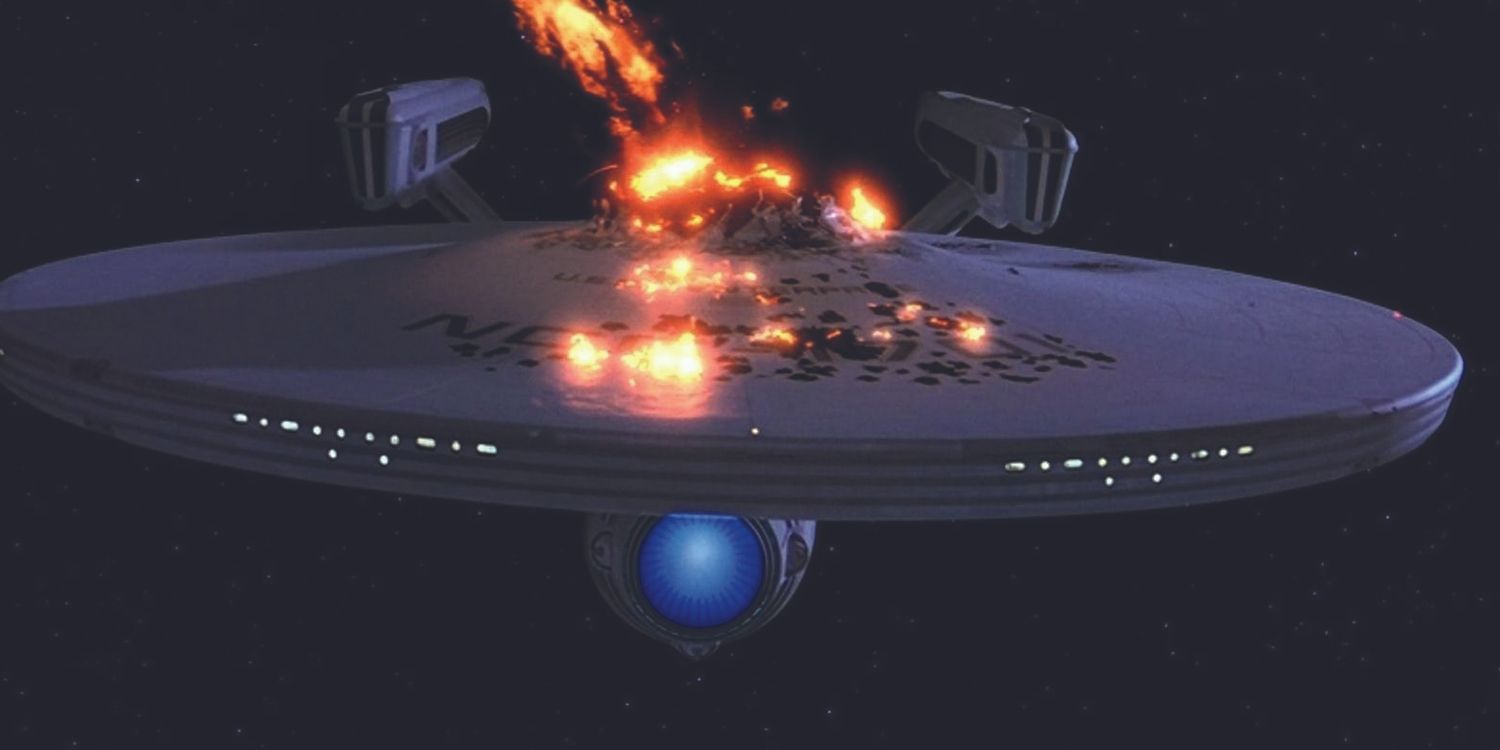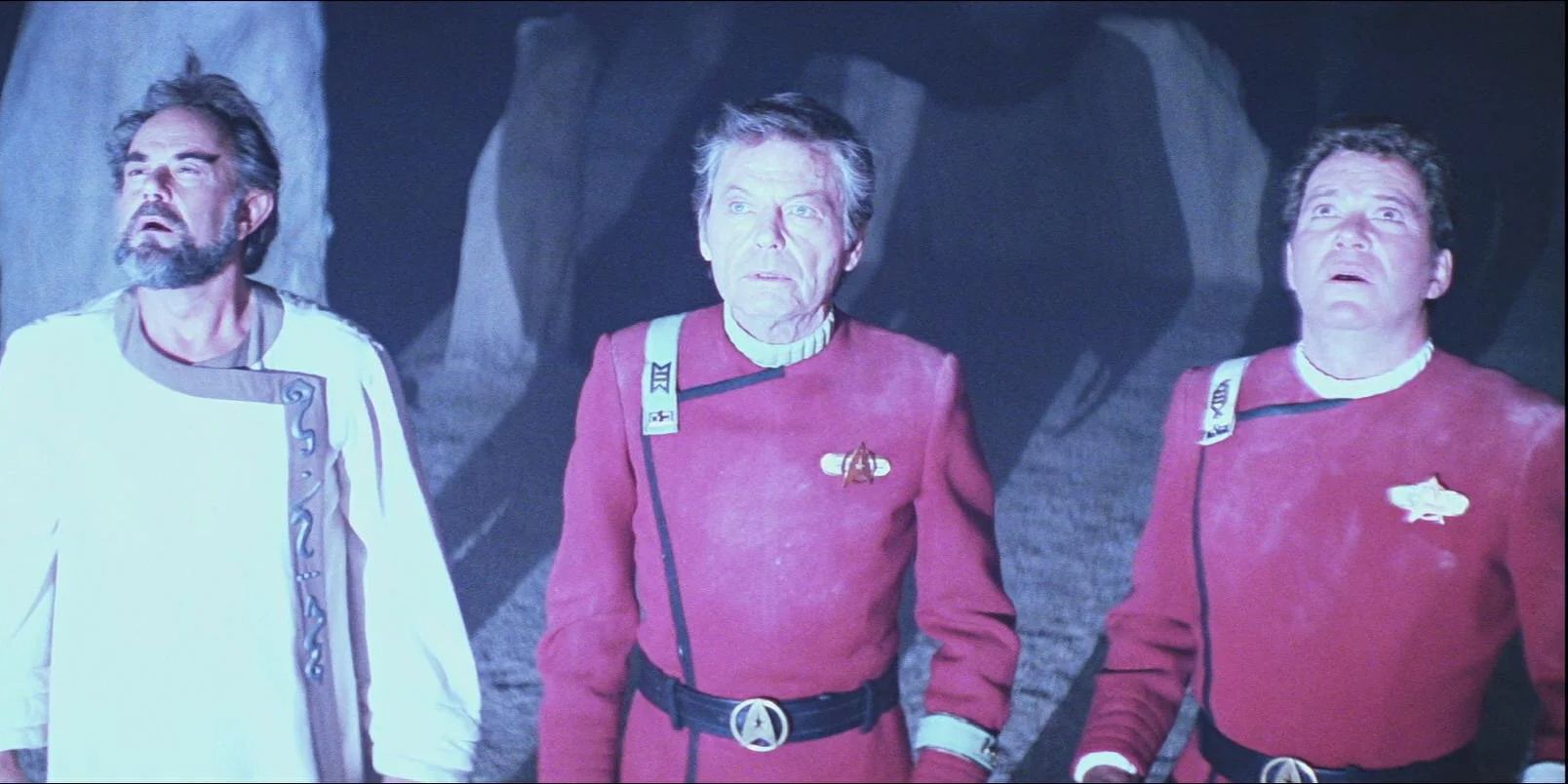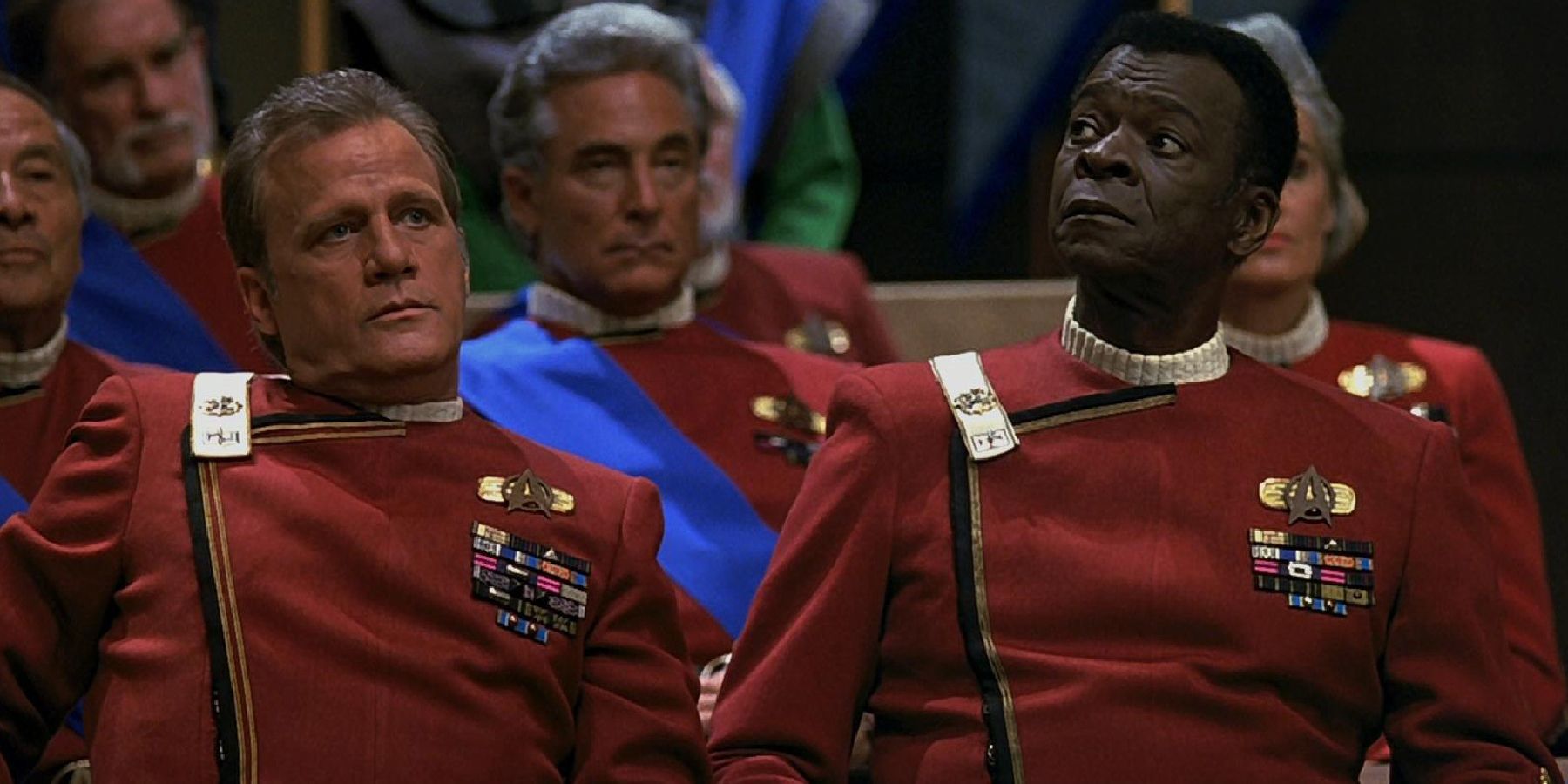Summary
- Gene Roddenberry's strict rules on human behavior in Star Trek often hindered the creativity of writers, leading to conflicts and creative workarounds.
- Despite his objections, many of the aspects of Star Trek that Roddenberry disliked ended up becoming beloved parts of the franchise's ongoing story.
- Roddenberry's conflicts with writers and his attempts to exert creative control over the franchise sometimes led to tension and disagreements, but ultimately, Star Trek continued to thrive and evolve.
As the creator of Star Trek, Gene Roddenberry often had some very strong opinions on the movies and TV episodes that were made during his lifetime. So stringent were Roddenberry's demands on what Star Trek should be that writers often found themselves creatively hampered. While working on Star Trek: The Next Generation, Michael Piller referred to the strict rules on human behavior and life in TNG's 24th century as "Roddenberry's Box." Famously, Roddenberry banned the TNG crew from having any interpersonal conflicts, which often made it difficult to increase dramatic tension in the show's early days.
Writers often had to find creative ways around Gene Roddenberry's no conflict rule in Star Trek, which pushed the franchise in some interesting new directions. However, these creative solutions to "Roddenberry's Box" weren't always enough to keep the franchise creator happy. There were numerous Star Trek movies and TV episodes that Roddenberry took exception to, and he even went to the lengths of decreeing that one particular entry in the franchise wasn't even canon. Sometimes, Roddenberry was right in his assessment of the flaws in particular movies or TV episodes, but more often than not, the very things he objected to became beloved parts of the ongoing Star Trek story.
10 Star Trek: The Animated Series (Except Yesteryear)
Gene Roddenberry had initially been skeptical about the merits of doing Star Trek: The Animated Series, but recognized the benefits of stoking audience interest until a live-action continuation could be mounted. In 1988, however, following the rocky road to getting Star Trek: The Next Generation to screen, Roddenberry decreed that Star Trek: TAS isn't canon. With Roddenberry's creative control over Star Trek slipping from his grasp at this stage, it's likely that this was the creator showing that he still had some power. Reportedly, only one episode survived Roddenberry's purge of TAS from the canon - "Yesteryear" - a Spock origin story written by D.C. Fontana, and the only episode that Roddenberry considered of relatable quality to the live-action output.
9 Star Trek: The Next Generation - "Hide and Q"
The Star Trek: The Next Generation episode "Hide and Q" gave Q powers to Commander Riker (Jonathan Frakes) and set the stage for a behind-the-scenes conflict between Gene Roddenberry and Maurice Hurley. It was Hurley who originally rewrote "Hide and Q", but Roddenberry clearly disliked so much of the script that he substantially rewrote it himself. Receiving the rewrites, Hurley demanded that he be credited under the pseudonym C.J. Holland, because it bore no resemblance to his original work. This set up an ongoing war of attrition between both men, which was only exacerbated when Hurley was promoted to co-executive producer on TNG season 2.
8 Star Trek: The Next Generation - "The Bonding"
There was a recurring clash of ideals between Ronald D. Moore and Gene Roddenberry, which stretched all the way back to Moore's first script for Star Trek: The Next Generation. In Moore's original version of "The Bonding", the child of a dead Starfleet officer used the holodeck to bring his mother back to life. Bizarrely, Roddenberry disapproved of the central idea that a 24th century child would be unable to cope with the loss of their mother. This is why "The Bonding" was rewritten to include an alien species taking the form of Jeremy's mother and ended with Captain Jean-Luc Picard (Patrick Stewart) giving a speech to the aliens about death being part of life.
7 Star Trek: The Next Generation - "Family"
Ronald D. Moore's next clash with Gene Roddenberry came with his script for the Star Trek: The Next Generation episode "Family". Dealing with the fallout of "The Best of Both Worlds", the episode explored Jean-Luc's upbringing and the animosity between Picard's family members. According to Moore, Roddenberry highlighted everything that he hated about the episode during a meeting. He didn't believe that two brothers could have such animosity toward each other in the 24th century, and strongly objected to the lack of action and jeopardy. Michael Piller and Rick Berman persuaded a dejected Moore to carry on with the script, and it arguably became one of the most influential episodes of TNG, inspiring the overall story of Star Trek: Picard decades later.
6 Star Trek: The Next Generation - "Redemption"
The final Ronald D. Moore script that Gene Roddenberry famously objected to was Star Trek: The Next Generation's season 4 finale, "Redemption". The acclaimed two-parter about the Klingon Civil War and its impact on the Federation met with resistance from Roddenberry. A war storyline, despite being about the warrior race of the Klingons, wasn't in keeping with Roddenberry's utopian Star Trek vision. Furthermore, Roddenberry objected to the episode's focus on Lt. Worf (Michael Dorn), as he had always seen the Klingon as a background character and not a protagonist in their own right. After some back-and-forth, the episode made it to air, and became one of the best-regarded of Star Trek: TNG's season finales.
5 Star Trek: The Original Series - "The Trouble With Tribbles"
"The Trouble with Tribbles" is one of Star Trek's best comedy episodes, but Gene Roddenberry objected to the frivolity of David Gerrold's script. Roddenberry believed that comedy episodes like "Tribbles" undermined his more "serious" vision for Star Trek: The Original Series. For Roddenberry, Star Trek was not a comedy, a belief that led to several clashes with TOS producer Gene Coon during season 2. Interestingly, in the months before his death, Gene Roddenberry chose "Tribbles" as one of his ten favorite Star Trek episodes for TV Guide, suggesting his opinion on it had mellowed later in life.
4 Star Trek II: The Wrath of Khan
On Star Trek II: The Wrath of Khan, Gene Roddenberry had been relegated to the role of "executive consultant", partly due to the commercial failure of Star Trek: The Motion Picture. Still smarting from this treatment by Paramount, Roddenberry was hostile towards the subsequent movies, starting with Wrath of Khan. Roddenberry - perhaps rightly - objected to the movie's graphic violence. Strangely, he also objected to the militaristic approach to Starfleet taken by executive producer Harve Bennett and screenwriter Nicholas Meyer. These objections by Roddenberry are strange because the Starfleet command structure mirrored that of the US Navy. According to Roddenberry's former Executive Assistant Susan Sackett, he leaked the death of Spock to the press in an attempt to foster fan protests and torpedo production of the movie.
3 Star Trek III: The Search For Spock
The relationship between Gene Roddenberry and Harve Bennett didn't improve on the next Star Trek movie. Receiving a script for Star Trek III: The Search for Spock, an increasingly frustrated and paranoid Roddenberry saw the destruction of the USS Enterprise as a symbol of his redundancy rather than a thrilling plot point. Roddenberry believed that the destruction of the Enterprise was a calculated move to erase him from the Star Trek franchise forever. It's never been confirmed, but it has long been suspected that Roddenberry leaked the information about the Enterprise's fate during production. This wasn't the case, and the USS Enterprise-A later made its debut in the closing moments of Star Trek IV: The Voyage Home.
2 Star Trek V: The Final Frontier
The success of Star Trek IV: The Voyage Home saw Gene Roddenberry welcomed back into the fold to work on Star Trek: The Next Generation. It was a calculated move to enamor the new series to die-hard fans who objected to the lack of Star Trek: The Original Series characters. It's perhaps for this reason that Roddenberry inserted the cameo by DeForest Kelley as an aged Dr. McCoy in TNG's pilot. Despite Roddenberry having more creative control on a Star Trek project again, he still took a very dim view of the cinematic output.
Roddenberry objected to William Shatner's Star Trek V: The Final Frontier, because it retained similar themes to his abandoned 1975 script The God Thing. Roddenberry took this a slight against him and began drawing up legal proceedings against Shatner, which was forbidden by his contract. With legal avenues closed to him, Roddenberry demanded that The Final Frontier be deemed apocryphal and therefore removed from Star Trek canon.
1 Star Trek VI: The Undiscovered Country
Gene Roddenberry was invited to a screening of Star Trek VI: The Undiscovered Country two days before his death in 1991. This was an unfinished assembly of the sixth and final Star Trek: TOS movie, and Roddenberry had already given his own thoughts on the script. Nicholas Meyer remembered that Roddenberry objected to Lt. Saavik's betrayal in Star Trek 6, despite her being a character originated by Meyer, and not Roddenberry. There were also fierce disagreements between Roddenberry, Meyer and Leonard Nimoy about the racism against the Klingons in the movie. Nichelle Nichols had refused to deliver several lines that had racist connotations, while Roddenberry believed that racism had no place in Star Trek's utopian future.
Nicholas Meyer later regretted how the meeting between him and Roddenberry had ended, given the Star Trek creator's ailing health. However, Roddenberry was unrepentant, and reportedly asked his attorney Leonard Maizlish to start legal proceedings against Nimoy and Meyer after seeing the assembly. As with many of the movies and TV episodes that Gene Roddenberry deemed weren't Star Trek, The Undiscovered Country is an acclaimed farewell to the first era of the franchise that honors Roddenberry's utopian vision by having Kirk and the crew risk everything to preserve it.

